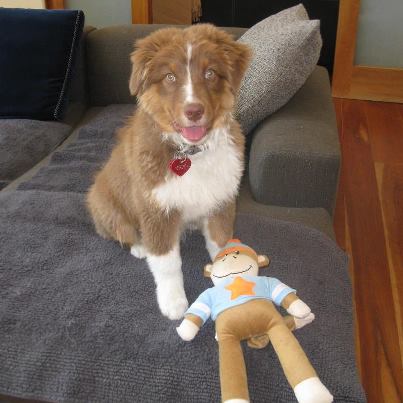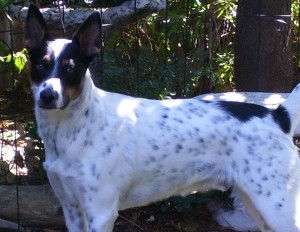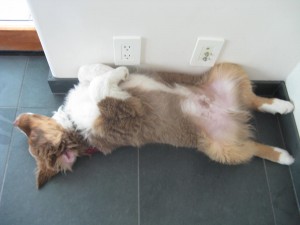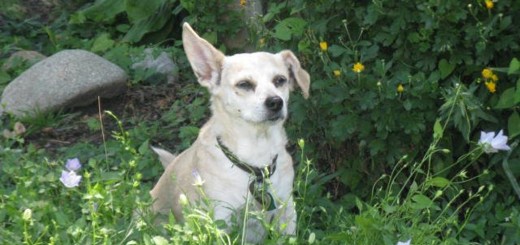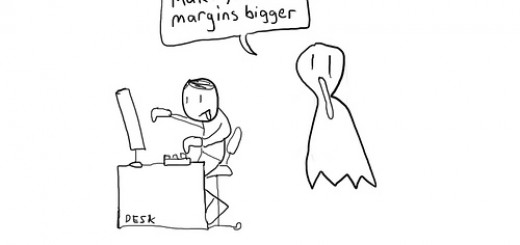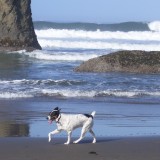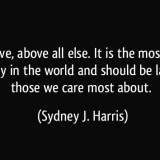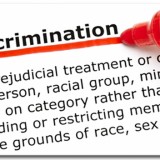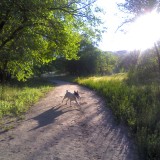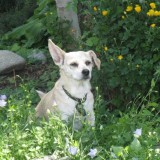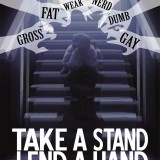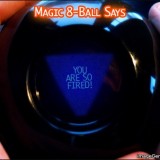Puppies, mentors and learning from others
I recently dog-sat my sister’s new puppy, a high energy, hard- headed, assertive little herding dog who is adorable but misdirected.
At only a couple months old, he had not spent any significant time with other dogs. And so, in his little universe, everything revolved around him, his needs, wants, and desires. Read, no boundaries.
I decided to bring my own dog to help me babysit. Coincidentally he also is a herding dog with all the ingrained hard-headed but loveable traits mentioned above. However, he also has the benefit of being older, wiser and an obedience school graduate. 🙂
From early a.m. to late p.m., the puppy was all over my dog, jumping on his head, scratching his face with his sharp nails, biting his ears with his piranha teeth, yapping and making a pest of himself. It occurred to me that as much human training as this puppy may have gotten in his short life, he had never learned discipline from one of his own kind, an older dog who speaks his language and identifies with him.
Over the weekend, I noticed that the more the two interacted, the better the puppy behaved. By the end of the weekend he no longer constantly harassed my dog, but was content to go off and play by himself. He was learning boundaries and becoming better socialized, skills that would serve him well when he went out into the world.
So, this isn’t just a nice story about two dogs. It’s really about the importance of mentoring and learning from others who have more experience, which is what I saw unfolding before me over the weekend.
The word mentor comes from the character “Mentor” in Homer’s epic tale, The Odyssey. Mentor was a trusted friend of Odysseus, the king of Ithaca. When Odysseus fought in the Trojan War, Mentor served as a friend and counsel to Odysseus’ son Telemachus.
There is nothing like having a mentor who can help guide us as we muddle through our development as a writer (or any process, for that matter). No matter how old we are, there’s always someone who “speaks our language,” understands our needs and can teach us, support us, and nurture us through our learning processes.
- My first professional mentor was Melissa, who owned a PR agency and taught me the profession of public relations from the ground up. I still look to her as the one who initially trained me to write professionally, work with the media, and have an eye for what is newsworthy.
- My second mentor was Larry, who stuck a 35mm camera in my hand and said, “take this home, learn to use it.” He also was the boss who forced me to do media interviews, talk to reporters and get in front of TV cameras to tell the story of our organization. He knew I was afraid to do it, and he forcefully nudged me along. Today, 30 years later, I thank him for giving me the skills that have served me for decades.
- Another strong mentor was Troy, my first newspaper editor who oversaw my freelance reporting on a murder trial. It was my first professional writing job — covering a six-week double murder trial! — and Troy was there every night on the other end of the phone to talk with me about my daily story that I had to file. He taught me about nut graphs and lede (lead) paragraphs and finding the heart of a story. He was a darn good editor and helped me find my confidence to do a difficult job.
- Finally, my dad, a lifelong journalist and writer, who was there all my life nudging me toward my writing and helping me find my voice. He always was my biggest teacher, cheerleader, butt kicker and shoulder to cry on when it came to writing. He passed away last year, and I am currently without a strong mentor. So now, I hang out with other writers, keep up with blogs and books about writing, and try to learn as much as I can from others. But, I do feel the difference and the void of losing that one special person who really, really knew what was going on in my head and my work, who could get me motivated, keep me motivated and teach me something in the process.
Perhaps you’ve had a special mentor who taught you how to write, or some other skill. If so, I hope you’ll share what they’ve meant to you here.

